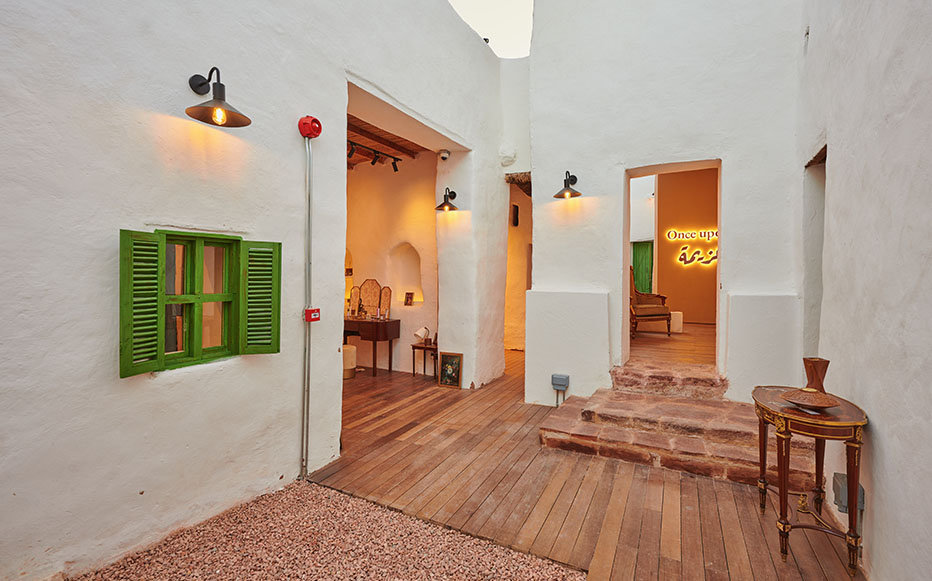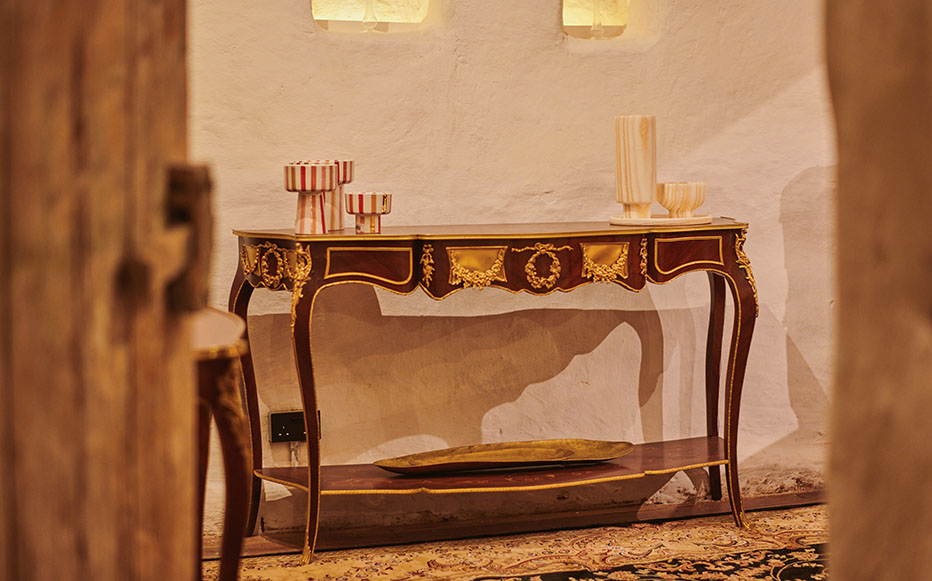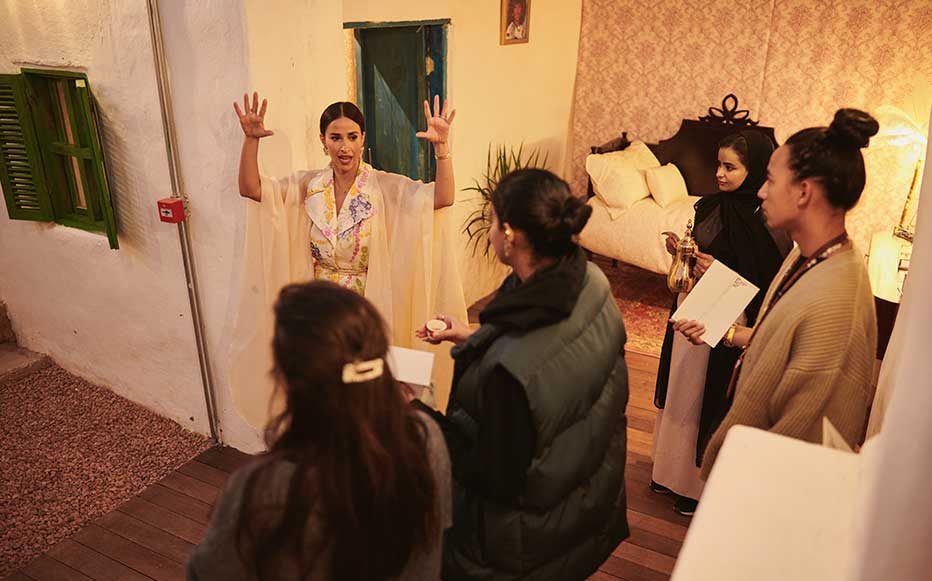Jeddah: Saudi vintage collector, fashion entrepreneur and creative consultant Rae Joseph is tapping into the Kingdom’s nostalgia by shedding light on the azeema — a type of gathering that took place in traditional Saudi households between 1980-2000 — through an event at her retail store in AlUla Valley.
Joseph is taking AlUla locals and visitors on a journey through time via the unique fashion event “Once Upon an Azeema.”
The event, which kicked off on Jan. 26 and will conclude on Feb. 25, is taking place at Tafoni, a restored heritage house located in the Al-Jadidah district.

“I find our azeemas to be extremely glamorous and fabulous and there is a certain aesthetic and vibe that they generate. It is beautiful and goes to the essence of who we are, so we wanted to celebrate it at Tafoni,” Joseph said.
Speaking to Arab News, Joseph said that she curated this fashion concept event because Saudis rarely reference their own cultural stories as sources of fashion inspiration.
“Once Upon an Azeema” narrates Saudi heritage by highlighting fashion elements within a context that recalls the traditional azeema, where Tafoni is the house, Joseph and local retailers are the hosts and visitors are the guests.
“At the entrance, visitors can scan a QR code, which takes them to a short video where I greet them and explain the concept,” Joseph said.
The pieces sold at the store include womenswear, menswear, accessories, fine jewelry, beauty products and home decor. As for local brands, the store offers 100 percent Saudi local and regional brands such as Abadia, Noura Hifzi, Qormuz, Moushi, Mashael Al-Torath, Bisht Manahel, Zal Official, Haal, Jeed Jewelry, Dalal Jewelry, Th’habah Jewelry, Érth Studio, Teeb, Clay and Mzn skincare.

“The store is telling a Saudi story and we wanted to make sure we stay true to that by working and supporting local brands and creatives,” said Joseph.
At the majlis, a room found in Saudi households to receive guests, visitors shop for formal wear, jewelry and home decor pieces.
In the dining room, known in Saudi Arabia as mugalla, kitchenware and home decor products are displayed.
Replicating the post-dinner Saudi tradition as part of every azeema comes the incense or bukhoor. Visitors are taken to the bukhoor corner where they can shop for local incense burners from retailers.
Skincare, perfumes and beauty products are displayed on the vanity and home decor pieces are lined up along the shelves of a bedroom and dressing room.
Also in the dressing room, visitors are offered the chance to shop for a wide variety of menswear, womenswear and accessories.

The jewelry room, known in Saudi Arabia as tujoori, is where fine jewelry pieces are on display.
Lastly, in the powder room, shoppers get to explore more hygiene and skincare items.
“Our focus was to offer pieces that are high-end and suitable for today’s market but at the same time reference the styles, fashions and products used in a Saudi azeema back in the day. As far as fashion goes, we focused on having pieces that speak elegance and glamor, since that’s how you would dress at an azeema,” said Joseph.
The store speaks to locals by evoking memories of the past, but it also has appeal for non-Saudis, who can catch a glimpse of the Kingdom’s cultural heritage.
The event has been getting rave reviews from visitors.
“People feel culturally seen and connected to the store through fashion and retail,” Joseph said.
“The visitors’ reaction was overwhelmingly positive and exceeded all of our expectations. We couldn’t have asked for a better outcome.”
Joseph is now keen to spread the classic concept around the world to tell the Saudi story.
“I would love to take the concept on a tour around the world and give people in different countries a chance to taste a bit of our culture by way of fashion,” she said.
AlUla frequently plays host to luxury retail and fashion events.

The Ashar Valley Fashion is hosting a series of luxury retail pop-ups featuring top local Middle Eastern and international brands, dining options and art such as Samer Halimeh, Assouline, Michael Cinco, Azza Fahmy, Vianney Halter, café The Terrace by L’Opera and the work of sculptor Anchar Basbous.
Set against the stunning landscapes of the Ashar Valley, these pop-ups promise a sensory and memorable shopping experience with exclusive items and designs inspired by AlUla.
The experience was launched on Dec. 23 and runs until March 23.
Last year, the city hosted Italian luxury fashion house Dolce & Gabbana, where its Alta Moda, Alta Sartoria and Alta Gioielleria collections were staged.







































